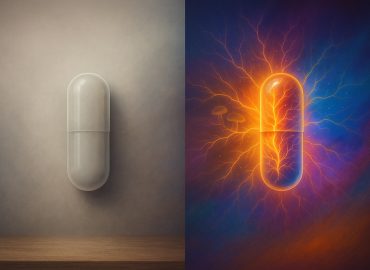The Neuroscience of Microdosing: How Psilocybin Affects Your Brain
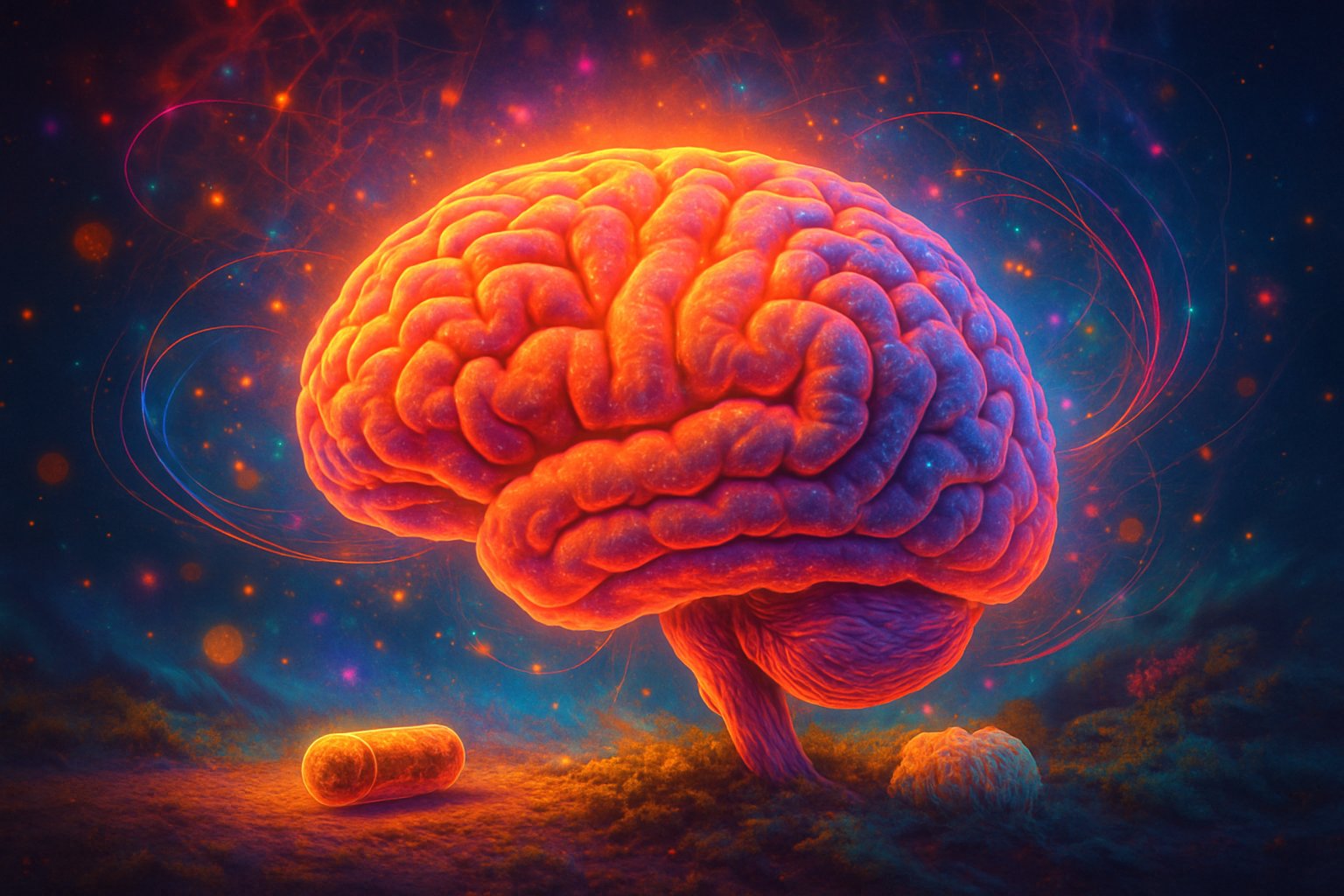
Thinking about trying psilocybin microdosing? You’re not alone. Across Canada, health-curious people are turning to small, precise doses of psilocybin (the active compound in magic mushrooms) as a natural way to boost mood, creativity, and mental clarity.
At Path, we’re all about pairing data-driven wellness with West Coast good vibes. So, let’s explore how psilocybin interacts with your brain in microdoses, backed by real science, not hype.
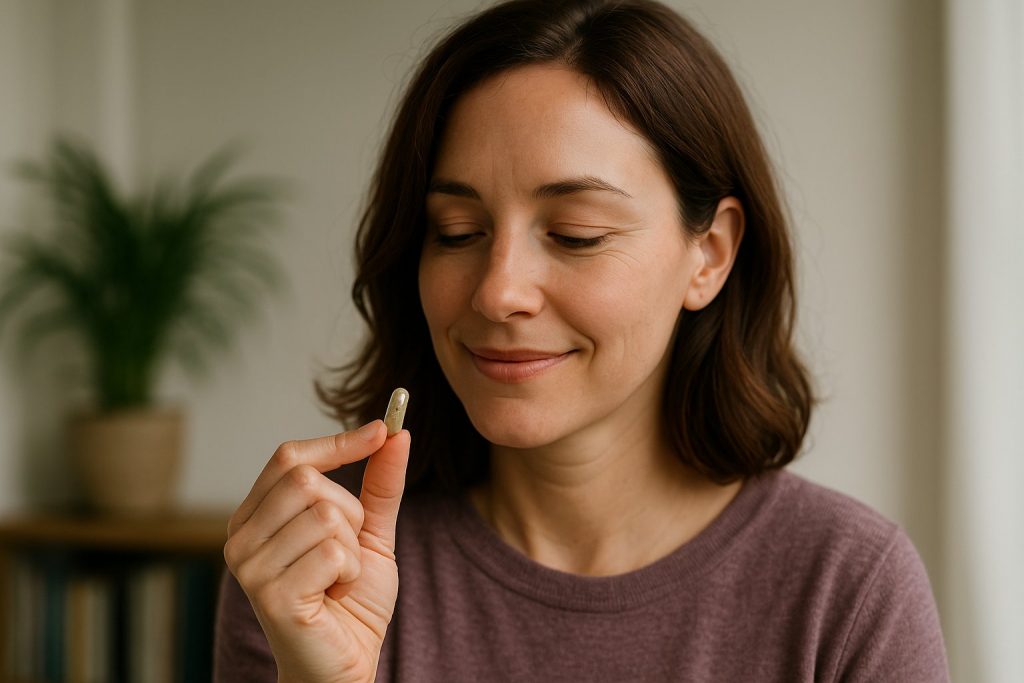
What exactly is microdosing?
Microdosing means taking very small amounts of psilocybin—usually around 0.1 to 0.3 grams of dried mushrooms. Unlike higher doses, microdosing doesn’t cause noticeable hallucinations or disrupt your day. Instead, you might experience gentle improvements in mood, focus, and creativity. It’s perfect for busy lifestyles.
At Path, our microdose capsules offer precisely measured, shelf-stable doses, taking the guesswork out of the process. Consistency is key for optimal benefits, and our products deliver exactly that.
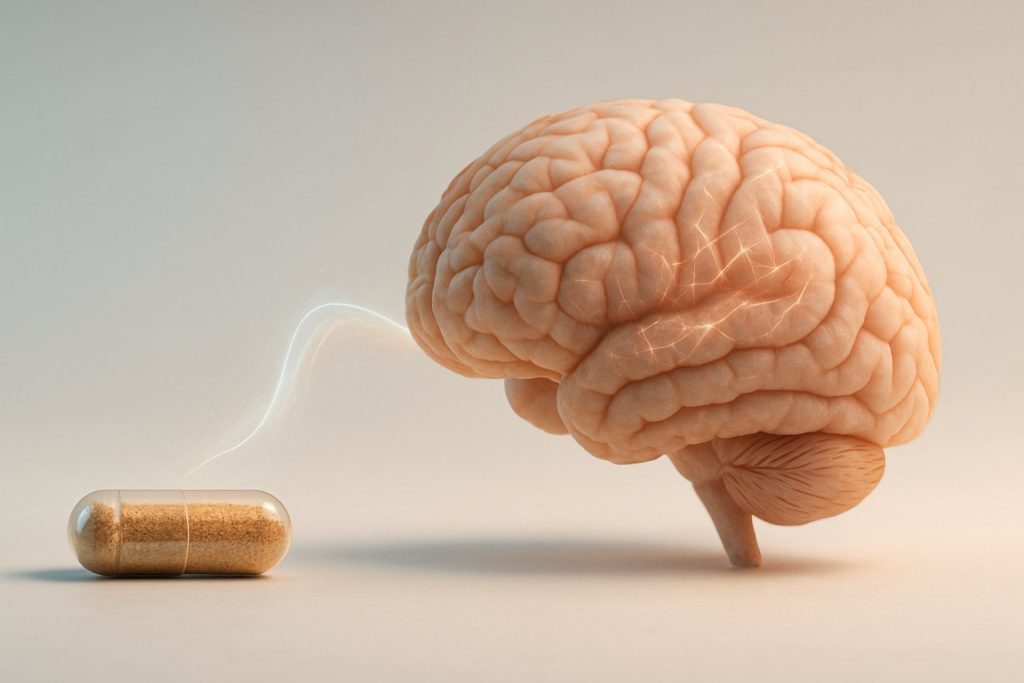
How does psilocybin affect your brain?
Psilocybin becomes psilocin in your body, binding to serotonin receptors (especially 5-HT₂A). Think of serotonin as your brain’s “feel-good” chemical-affecting mood, creativity, and emotional well-being. When psilocybin engages these receptors, it can open up new neural pathways, promoting greater brain connectivity and flexibility.
Enhancing neuroplasticity
Neuroplasticity refers to your brain’s ability to adapt and reorganize itself. Research shows that psilocybin helps boost neuroplasticity even in tiny doses. It triggers brain-derived neurotrophic factor (BDNF), helping your brain form new connections and supporting cognitive flexibility. Essentially, microdosing might help your brain stay adaptable—keeping your mental state as vibrant as a West-Coast sunrise.
Psilocybin’s effects on neuroplasticity aren’t just immediate; they may persist over days or even weeks. This means microdosing could potentially support long-term cognitive health, helping maintain sharpness and creativity. Whether you’re managing daily stress or pushing through creative blocks, enhanced neuroplasticity could be your secret weapon.
Tuning brain networks
Your brain consists of networks—one crucial one is the Default Mode Network (DMN). It governs daydreaming, self-reflection, and your internal narrative. Psilocybin temporarily dials down DMN activity, allowing different brain areas to communicate more freely. This can lead to creative breakthroughs and fresh perspectives—ideal for folks seeking personal growth and clarity.
By gently reducing DMN dominance, psilocybin may help quiet negative self-talk or repetitive thoughts. This creates mental space for innovative thinking and improved problem-solving. Users frequently report feeling more present, clear-headed, and open-minded during their microdosing routines.

Mood and mental well-being
Many Canadians turn to microdosing to gently uplift their mood and reduce anxiety. Early research and personal accounts suggest microdosing may help you feel calmer and more balanced without the heavy lift of traditional medications. Yet, it’s important to remember everyone’s brain is unique—results can vary, and more research is ongoing.
Emerging studies indicate microdosing might also ease mild depressive symptoms and help regulate emotional reactions. By enhancing serotonin signaling, these subtle shifts could significantly impact daily emotional well-being, offering a balanced mood without the highs and lows of more potent substances.
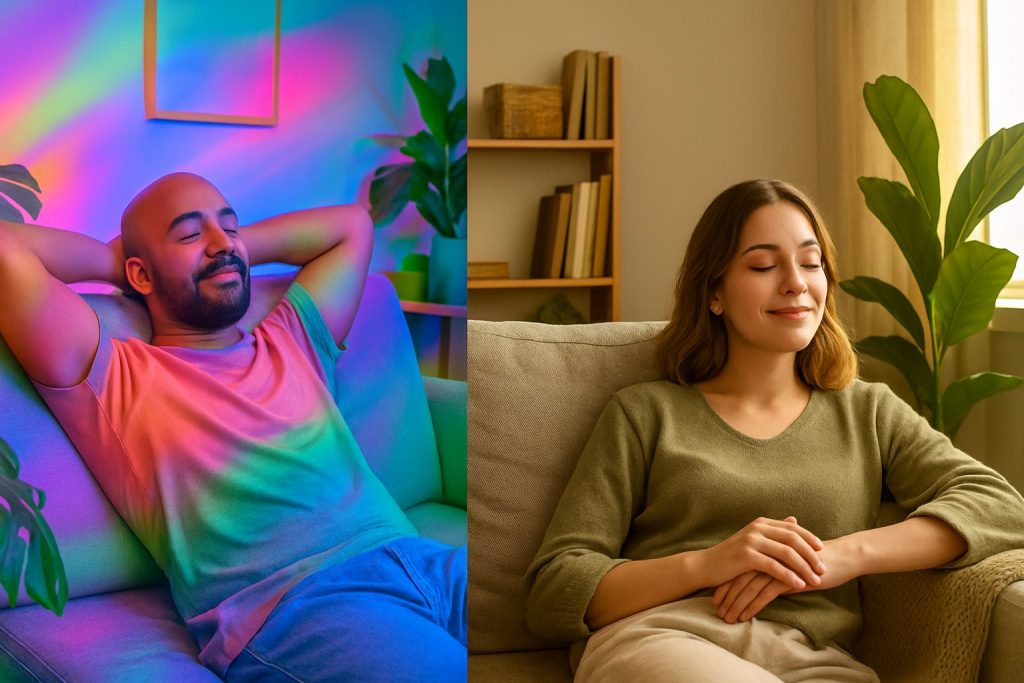
Expectation versus reality: the placebo factor
It’s true, the placebo effect can play a significant role. Positive expectations alone can enhance your mood and well-being. Some studies have found minimal differences between psilocybin and placebo groups, highlighting how mindset and rituals around microdosing can contribute significantly to perceived benefits.
At Path, we celebrate the full experience (including your personal journey and intention setting) as key ingredients to successful microdosing. Incorporating mindfulness, journaling, or simple rituals around your microdose routine can amplify these effects, reinforcing a sense of purpose and intention.
Dosage, safety, and Canadian legal context
Safety and responsible use are essential. Start low and go slow—around 0.1 grams is a great place to begin. Consult your healthcare provider if you have mental health conditions or take other medications. Psilocybin remains regulated in Canada, but Path delivers discreetly nationwide, ensuring high-quality capsules that you can trust.
Our capsules provide an easy way to maintain consistency, avoiding the variability often encountered with loose mushrooms.
The future of microdosing
Science on microdosing is still unfolding. Larger studies are needed to clarify optimal dosing schedules, long-term safety, and specific benefits. At Path, we’re committed to innovation and data-driven wellness, continually exploring and sharing new research. By staying at the forefront of scientific developments, we ensure our community has the latest, most reliable information.
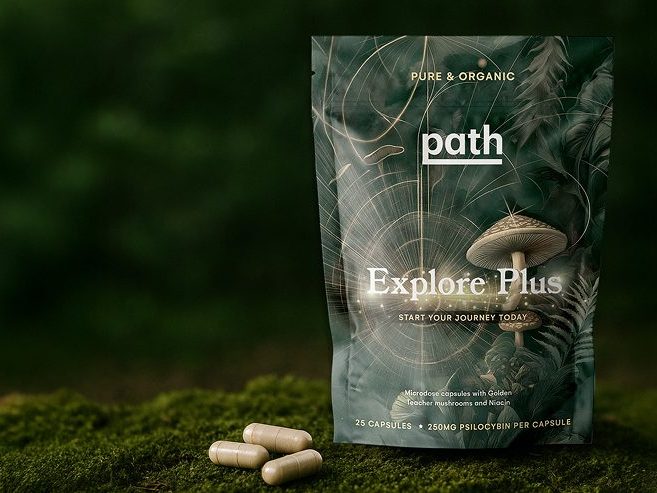
Choose your path with confidence
Curious to try microdosing? Explore Path’s premium psilocybin capsules, designed with your wellness and lifestyle in mind. With precise doses and clear guidelines, Path helps you navigate your wellness journey—whether you’re scaling peaks or breaking creative boundaries.
Remember, microdosing is one part of a broader wellness practice—complement it with healthy habits, mindfulness, and community engagement to fully enhance your experience.
Choose your path and enjoy the journey.
